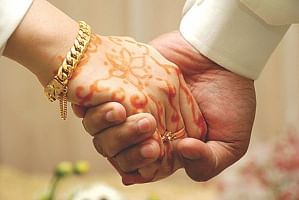Your Advocate
Your Advocate
This week Your Advocate is Barrister Omar Khan Joy, Advocate, Supreme Court of Bangladesh. He is the head of the chambers of a renowned law firm, namely, 'Legal Counsel', which has expertise mainly in commercial law, corporate law, family law, employment and labor law, land law, banking law, constitutional law, criminal law, IPR and in conducting litigations before courts of different hierarchies.

Query
I am a Muslim girl and I have a relation with a Hungarian Christian man. Can I marry him under Special Marriage Act 1872? I am Muslim and he is Christian. Do we need to declare ourselves as non-believers (atheists) if so, do we need to go through notary public? Or Can he declare himself as Christian and I can declare myself as Muslim while registration? I will be very grateful to you if you please clarify my doubts in this regard.
Anonymous
Response
In Bangladesh, family laws are personal, meaning that such matters are governed by the religious laws of the individual concerned. Since you are a Muslim, Muslim law will regulate your marriage related issues. Under the Muslim law, a Muslim girl cannot get married to a boy possessing any other religion. Though, a Muslim male can marry any girl, who is a follower of any Kitaab, e.g. a Christian or a Jews. Accordingly, you are not allowed to marry a Christian Male.Furthermore, in Bangladesh a Christian male cannot also get married to a Muslim girl under the Christian Marriage Act 1872. Hence, your marriage cannot also be solemnized under the Christian law in Bangladesh.
However, under the Special Marriage Act 1872 which you have also stated, cross marriage is possible among persons professing certain specified different religions as well as among persons declaring themselves as non-believers (atheists). A cross marriage between a Christian and Muslim is not allowed under the Special Marriage Act 1872. Hence, you cannot get married under the Special Marriage Act 1872 if you declare yourself as a Muslim and the boy declares himself as a Christian.
However, the option of marriages among non – believers (atheists) under the Special Marriage Act 1872 still remains open for you. When a marriage is solemnized under the Special Marriage Act 1872, the bride and the bridegroom have to sign a Declaration which reads as:“I do not profess the Christian, Jewish, Hindu, Muslim, Parsi, Buddhist, Sikh or Jaina religion” or (as the case may be) “I profess the Hindu, or the Buddhist, or the Sikh or the Jaina religion”.
Construing the words of the aforementioned Declaration, it appears that you may either declare yourself a non-believer i.e. professing none of the religions or you may declare to profess any one of the religions listed there in. Marriage is only allowed between persons declaring to profess any one of the religions specifically mentioned in the second part of the Declaration. Hence, if the boy declaresthat he is a Christian, it will not be possible for him to marry a Muslim girl as the name of Islam religion is not mentioned there in. Therefore, the only option for you to marry him under this Act is if both of you declareyourselves as non-believers. Thus, as you askedin the query, it appears that for both of you to get married under the Special Marriage Act 1872, both you and him have to declare yourselves as non –believers (atheists).
You do not have to go to any Notary Public or Lawyer separately for declaring yourselves as non –believers (atheists) as both of you have to sign the declarations under the 1872 Act, while the marriage is being registered.
Besides, the fact that your would be husband is a Hungarian citizen is not a bar to your marriage in Bangladesh. Whether Hungarian authority will accept this marriage will depend on the law of Hungary. I am not an expert in Hungarian law but I can state that most of the European countries recognize the marriage as a valid marriage if the same is recognized as valid under the law of the country where it was solemnized.
I hope you will have answer to your queries from the aforesaid opinion.
For detailed query contact: omar@legalcounselbd.com.